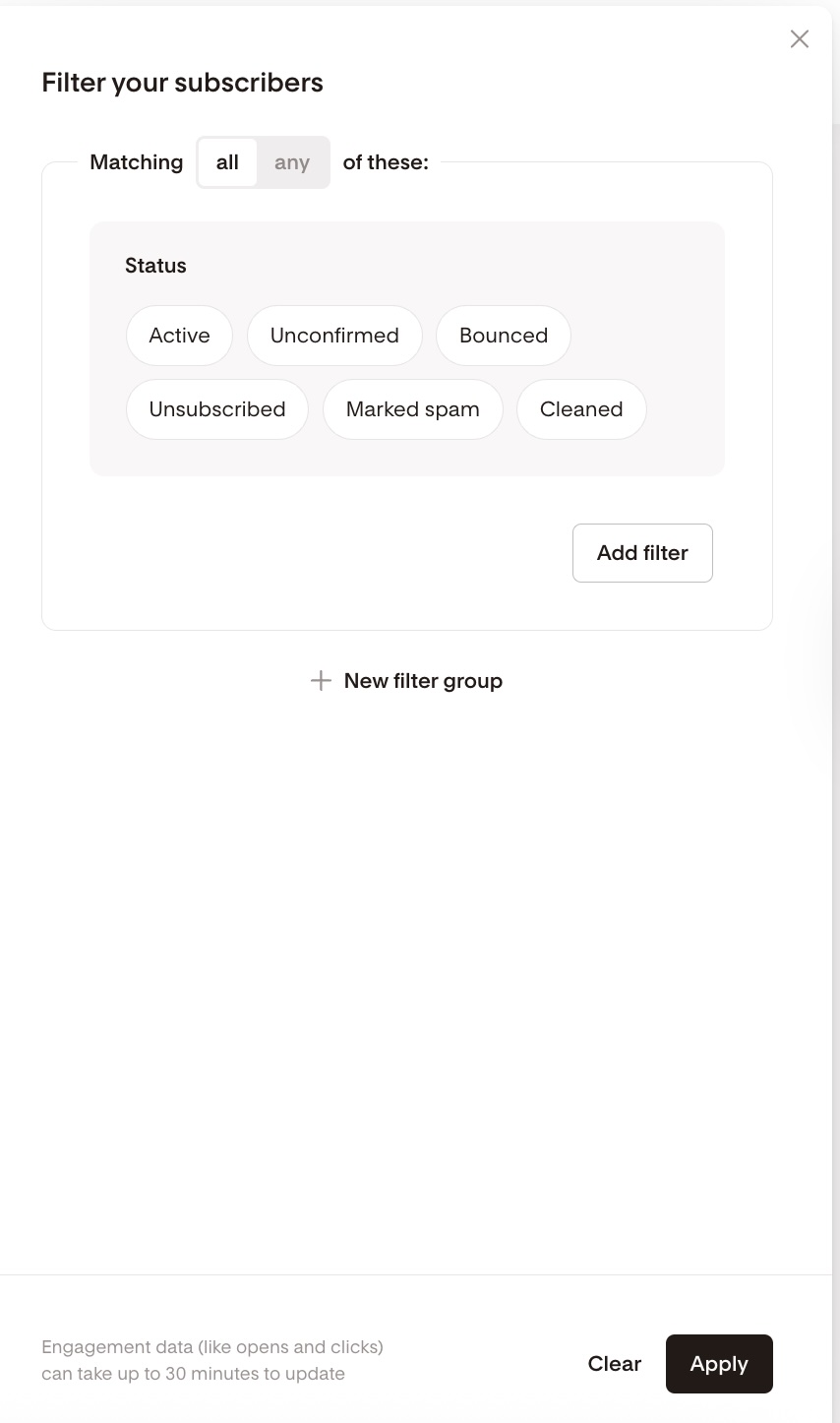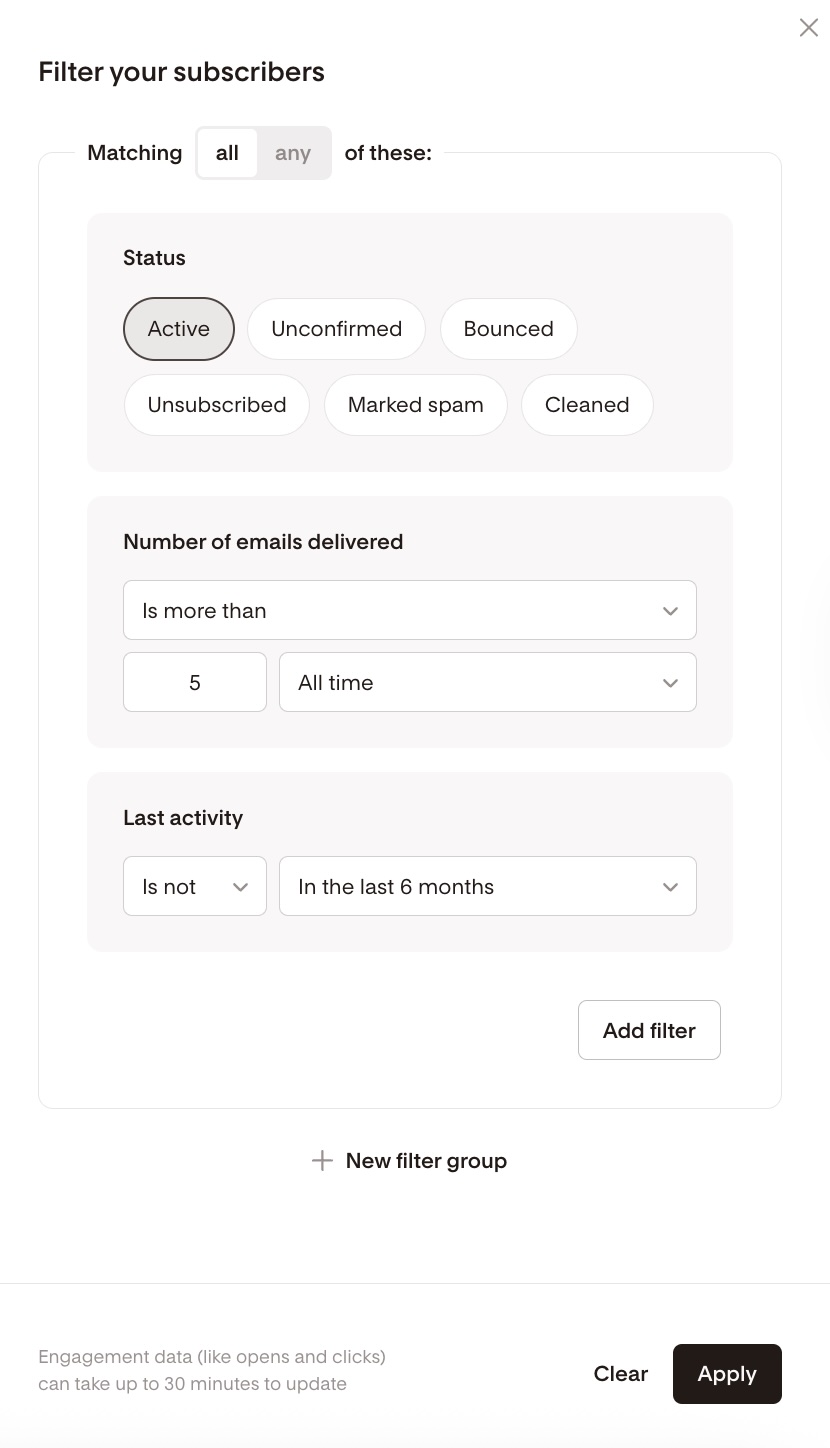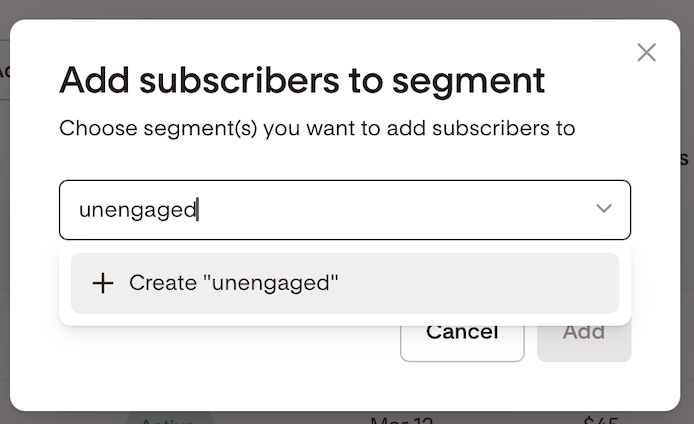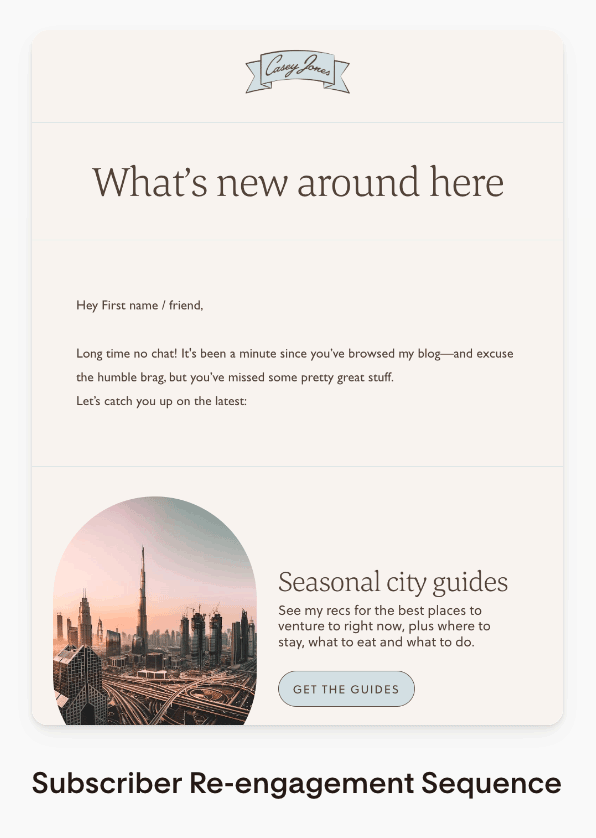How to Identify and Manage Unengaged Subscribers in Flodesk
Overview
Maintaining a healthy, engaged subscriber list is critical for strong email deliverability, higher open and click rates, and better overall performance from your email campaigns.
Over time, some subscribers will stop engaging with your emails—continuing to message them can negatively impact your sender reputation and cause more of your emails to land in spam.
Regularly cleaning your list helps you:
Improve email deliverability
Increase open and click rates
Focus on subscribers who truly want your content
Best practice: When moving subscriber lists from one platform to another, never move over your unengaged subscribers.
This guide outlines how to identify disengaged subscribers using Flodesk’s filtering tools and how to manage them in line with email marketing best practices.
What Are Unengaged Subscribers?
Unengaged subscribers are people who consistently ignore your emails. These contacts haven’t opened or clicked on your campaigns over a defined period of time, even though they are still technically subscribed (subscriber status: active). They may have:
Stopped opening your emails altogether
Never clicked on any links in your emails
Lost interest in your content
Changed email addresses without unsubscribing
Why This Matters
Continuing to email these subscribers hurts your engagement rates and signals to inbox providers (like Gmail or Outlook) that your emails aren’t valuable—this can reduce deliverability for everyone on your list, even your most loyal readers.
Cleaning your list regularly helps signal to mailbox providers like Gmail that recipients are excited to see your messages in their inboxes, making them less likely to filter them out or send them to spam.
Best Practice: Criteria for Identifying Unengaged Subscribers
There’s no one-size-fits-all definition. Always adjust criteria based on your emailing freqency.
Depending on your sending behavior, here are a few methods you can use to identify an unengaged subscriber in your audience.
Note: you shouldn’t use all these criteria at once to filter your list.
Activity type | Suggested criteria |
Open rate | Less than 5%–10% over the last 60–90 days |
Click rate | No clicks in the last 90 days |
Emails opened | 0–1 emails opened in the past 8–10 campaigns (assuming weekly sends ~ 90 days) |
Emails clicked | 0 clicks in the past 10 campaigns (assuming weekly sends ~ 90 days) |
Last activity | No opens or clicks in 3–6+ months (depending on send frequency) |
Adjust based on how often you send emails. For example, if you email weekly, use a 90-day window. If monthly, consider 6 months or more.
How to Find Unengaged Subscribers in Flodesk
You can identify unengaged subscribers by applying filters in your Flodesk account.
Step-by-step:
Go to Audience > All Subscribers
Click the Filter (top right, next to “Add subscriber”)
The filter panel will slide out from the right—this is where you’ll build your filter criteria
Once you set your filters, hit Apply to view the results
Important: Depending on your audience and sending frequency, you can increase or decrease the time frames and message thresholds.
NOTE: the below are just examples, not hard rules.
Example 1: Subscribers who are active, are receiving emails, but have never opened or clicked on your emails.
Subscriber status: Active
Emails delivered: more than 5 in the last 90 days (adjust this depending on your sending frequency)
Emails opened: 0 times over all time
Emails clicked: 0 times over all time
Example 2: Subscribers who are active and receive emails, but have stopped engaging after a while.
Subscriber status: Active
Emails delivered: more than 5 over all time (adjust this based on your sending frequency)
Last activity: not in the last 6 months
What You Can Do with Unengaged Subscribers
After applying filters, you can use the Select All checkbox to take bulk actions:
Add to segment - Choose the segment(s) from the drop-down you want to add the selected subscriber(s) to. You can also create a segment by starting to type the new segment’s name.
For example, You can add unengaged subscribers to a dedicated new segment called e.g. “unengaged”.
To avoid sending them further emails, exclude this segment from your email campaigns/newsletters and your active workflows.
Remove from segment - Choose the segment(s) you want to remove the selected subscriber(s) from - without deleting them from your entire list
Unsubscribe from your entire list
Delete permanently from your entire list
Action | Description |
|---|---|
Send a re-engagement campaign | Try to win them back before removal |
Move them to a segment | Use a dedicated “Unengaged” segment to separate them from active contacts |
Unsubscribe them | Remove them from future sends while keeping their records |
Delete them | Permanently remove their data from your account |
Remove from specific segments | Keep the contact on your list, but exclude them from certain segments |
What is a re-engagement campaign?
Before removing unengaged subscribers you can give them one last chance to engage. A re-engagement (or “win-back”) campaign is a one-time email or sequence designed to get unengaged subscribers to take action.
What to include:
A reminder of who you are and why they subscribed
A special incentive (discount, freebie, early access)
A call-to-action (update preferences, confirm they still want emails)
A clear option to unsubscribe if they’re no longer interested
Use Flodesk’s Subscriber Re-engagement Sequence template to make this easy.
Should I Unsubscribe or Delete?
Action | What it does | Can they be added back later? |
|---|---|---|
Unsubscribe | Marks the subscriber as inactive; keeps their data but stops future emails | ❌ Only if they opt-in again via a Flodesk form |
Delete | Removes the subscriber’s record entirely | ✅ Yes, via an opt-in form, manually or via CSV import |
Note: If you only want to delete a subscriber from a specific segment (not the entire list), use Remove from segment.
Summary
Cleaning your list is not about losing subscribers—it’s about keeping the ones who want to hear from you.
Key Takeaways:
Define “unengaged” based on activity: opens, clicks, and recency (last activity)
Use Flodesk Filters to identify low- or no-engagement contacts
Try a re-engagement campaign to bring them back
Unsubscribe or delete those who remain inactive
Maintain this process regularly (e.g., every 3–6 months)
A smaller, more engaged list performs better than a larger, unresponsive one.





